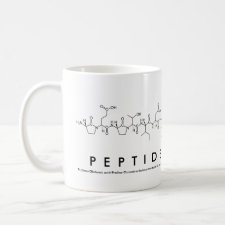
Authors: Jagadeesan KK, Rossetti C, Abdel Qader A, Reubsaet L, Sellergren B, Laurell T, Ekström S
Article Title: Filter Plate-Based Screening of MIP SPE Materials for Capture of the Biomarker Pro-Gastrin-Releasing Peptide.
Publication date: 2017
Journal: SLAS DISCOVERY: Advancing Life Sciences R&D
Volume: 22
Issue: (10)
Page numbers: 1253-1261.
DOI: 10.1177/2472555216689494
Abstract: Affinity-based solid-phase extraction (SPE) is an attractive low-cost sample preparation strategy for biomarker analysis. Molecularly imprinted polymers (MIPs) as affinity sorbents offer unique opportunities for affinity SPE, due to their low manufacturing cost and high robustness. A limitation is the prediction of their affinity; therefore, screening of analyte recovery and specificity within a large range of SPE conditions is important in order to ensure high-sensitivity detection and assay reproducibility. Here, a μ-SPE method for screening of the MIP-SPE materials using a commercial 384-well filter plate is presented. The method allows for rapid and automated screening using 10-30 μL of packed SPE sorbent per well and sample volumes in the range of 10-70 μL. This enables screening of many different SPE sorbents while simultaneously identifying optimal SPE conditions. In addition, the 384-well format also facilitates detection with a multitude of analytical platforms. Performance of the μ-MIP-SPE method was investigated using a series of MIPs designed to capture pro-gastrin-releasing peptide (ProGRP). Fractions coming from sample load, cartridge wash, and elution were collected and analyzed using mass spectrometry (MS). The top-performing MIPs were identified, together with proper SPE conditions
Template and target information: peptide, pro-gastrin-releasing peptide
Author keywords: sample preparation, mass spectrometry, separations or chromatography, protein chemistry, protein labeling, proteomics, biomarkers



Join the Society for Molecular Imprinting

New items RSS feed
Sign-up for e-mail updates:
Choose between receiving an occasional newsletter or more frequent e-mail alerts.
Click here to go to the sign-up page.
Is your name elemental or peptidic? Enter your name and find out by clicking either of the buttons below!
Other products you may like:
 MIPdatabase
MIPdatabase









